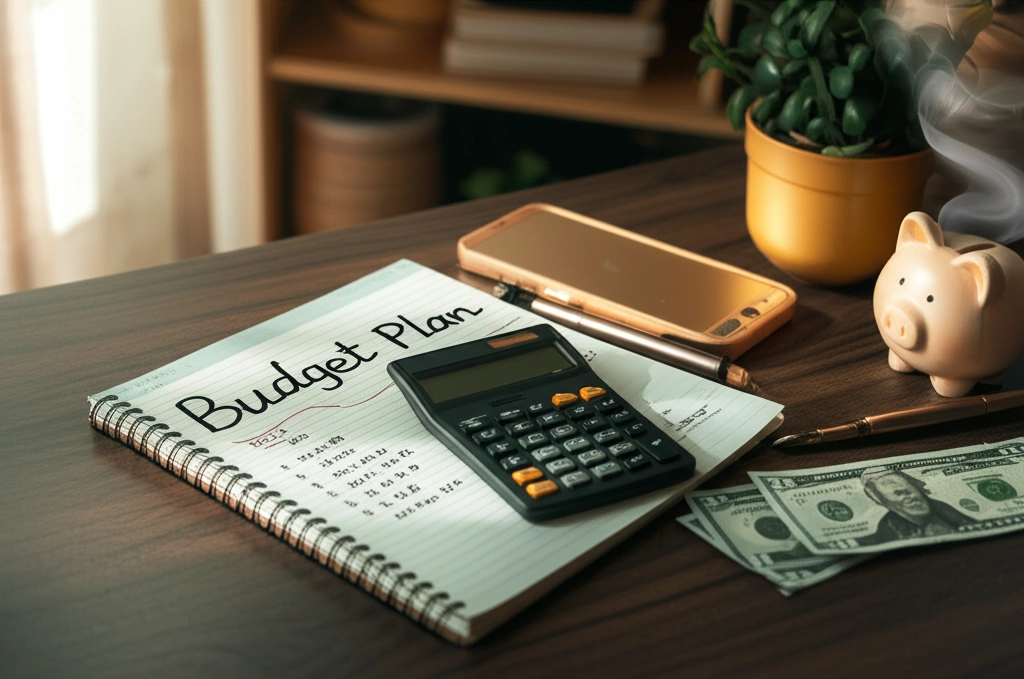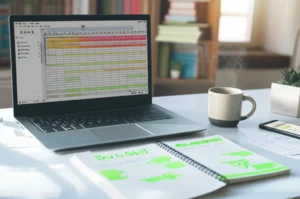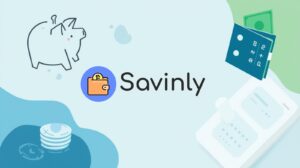Why Budgets Make Life Less Stressful
If you’ve ever opened your banking app and felt that lurch in your stomach—where did it all go?!—you’re not alone. The truth? Most of us aren’t born knowing how to manage money. But figuring out how can a budget help you reach your financial goals brainly—that can be a real turning point. A budget is more than a spreadsheet with numbers. It’s your financial GPS. It’s the difference between “hoping” for that future vacation, debt freedom, or peace of mind… and actually making it happen.
Buckle up, because you’re about to discover how to turn money from a silent stressor to a solid tool—without depriving yourself or turning into a penny-pincher. Ready to see what a good budget can do for you?
5 Ways Budgeting Moves You Closer To Your Goals
If you ask me what changed my own money story, it’s this: I started treating my paycheck less like Monopoly money, and more like building blocks for a real life. Here are the five ways a practical, people-friendly budget sets you up for those big wins—short and long term.
1. You Finally See Where Your Money Goes
Let’s get real. Most folks think they know where their cash disappears, but until you track every dollar, it’s like playing hide-and-seek blindfolded. With a budget, all that fog lifts. You actually see: rent, groceries, delivery coffee (wow, that adds up!), and those random “treat yourself” moments.
Start with a list: your take-home pay, then jot down your fixed (rent, bills) and variable (eating out, entertainment) expenses. Honest, unfiltered. Example: When I started, I was shocked by how much I spent on takeout—and I thought I barely ate out! That single detail helped me shift $60/month into actual savings.
According to practical financial guides, this is the first, magical moment: seeing your habits in cold, hard numbers. Only then can you decide what really matters.
Step-by-Step: Get Your Money Snapshot
- Write down every dollar you pocket (after taxes).
- Group your spending: fixed (home, car, insurance) and variable.
- Add it up and see what’s left—or what’s missing. (No shame, just data!)
2. Budgets Force You To Prioritize—And That Feels Empowering
The best part about making a budget? It pushes you to answer: “What matters most to me, right now and later?” That’s not just about skipping fancy coffee. It’s about choosing between being debt-free, building an emergency fund, or saving for a trip without the regret hangover.
So, what should be prioritized when creating a budget? Look at all your goals and basic needs. Do you have enough for food, rent, basic bills—even if things get bumpy? (If not, start there.) Next, hit the must-pay debts, then short-term dreams, and finally long-term big wins like retirement.
If you’re working with a tight paycheck, there are smart, doable ways to prioritize with less stress—like the tips over at how to budget money on low income. Don’t think you have to do it all at once. Pick one improvement each month, and you’re already winning.
Your 3-Step Priorities Jumpstart
- List what you must pay (rent, food, utilities).
- Pick one “pain” to fix next (debt, no emergency savings, a big need).
- Choose a small goal to enjoy—something just for you.
3. Good Budgets Turn Into Habits—That Reduce Money Drama
I admit it: before I started budgeting, I was “surprised” by bills every single month. When you budget, your money stops sneaking up on you. Instead, you start paying bills on time, saving for fun stuff, and you don’t spend three days panicking before payday.
But here’s the trick—make it automatic! Set up autopay for bills, and an auto-transfer to savings, even if it’s just $10. Over time, these small habits stack up like bricks in a wall. (True story: I built my first $1,000 emergency fund $25 at a time, just by letting automation do the work.)
Budgeting Habit Hacks
- Automate one bill and one saving or debt payment this week.
- Review your spending every Sunday—needs only five minutes, promise.
- Celebrate small wins, like zero late fees this month!
4. Budgets Help You Prevent—And Crush—Debt
If you lose sleep wondering how people pay off debt, I get it. Here’s the truth bomb: budgeting is your secret weapon. When you know what’s coming in and what’s going out, your debts shrink from giant monsters to manageable math. Suddenly, you’ve got a plan.
Use your budget to decide: pay the smallest debt first (that’s the “snowball” method—quick wins and confidence), or tackle the highest-interest one and save more long-term (the “avalanche” method). Add in whatever extra you can scrape together, and watch those balances melt away.
Want to see it? Let’s say you throw $50 extra at a credit card bill each month. That’s $600 a year, plus less interest—talk about a win.
If you’re searching for a simple answer to what can a budget help you do? select a response, it’s this: Pay off debt, sleep better, and start dreaming bigger. Check out what can a budget help you do? select a response. for more ideas that actually work.
Tracking Progress Toward “Debt-Free”
- Pick one strategy: snowball (smallest debt first) or avalanche (highest interest first).
- Use a chart (or just mark off boxes!) every time you shrink your balance.
- Reward yourself for each paid-off debt (nothing huge—maybe a treat or a mini celebration).
5. Budgets Let You Measure Progress—So You Can Tweak And Improve
No need to treat your budget like a strict diet. It’s more like a GPS: you always know if you’re still on track. Each month, glance back and ask, “What’s working? Where did I overspend? What tiny change would make next month better?”
Even better, watch your emergency fund grow, debts shrink, weekly savings tick up. Little milestones add up fast.
For folks who want a school-friendly spin, figuring out how can a budget help you reach your financial goals quizlet or the “everfi” version comes down to this: It shows you what’s possible, gives control over your money, and holds you accountable—without guilt trips. Find quick, friendly tips over at how can a budget help you reach your financial goals quizlet and how can a budget help you reach your financial goals everfi.
Quick Monthly Review: Your Budget Health Check
- How much did you save last month?
- Did you stick to your essentials? Any overspending?
- What can you adjust next month (lower a bill, up savings)?
Budget Styles—Pick What Works For You
Here’s the thing: there’s no “one size fits all” budget. Don’t stress if your best friend loves spreadsheets and you’d rather use an app—or sticky notes on your fridge!
| Budget Style | Who’s It For? | How To Start |
|---|---|---|
| Zero-Based | Want total control, track every dollar | Plan where every dollar goes (income minus expenses/saving = $0) |
| 50/30/20 Rule | Beginner, wants something easy | Use 50% income on needs, 30% wants, 20% savings/debt |
| Envelope/Cash | If spending gets out of hand | Put cash in labeled envelopes for each spending type |
| Hybrid/Digital | Busy, tech-friendly, or low-income | Use budgeting apps, set up auto-rules, or mix cash/cards |
Struggling to make the numbers work on a tight income? You’re definitely not alone. For real talk about making every dollar count—without feeling deprived—check out how to budget money on low income. It’s possible, promise.
What To Prioritize When Creating A Budget?
Alright, down to the nitty-gritty. What should be prioritized when creating a budget? Here’s your starter list, in real talk order:
- Essentials: rent, utilities, food, transportation. These are non-negotiable. No guilt if you have to spend here!
- Minimum debt payments: avoid extra fees, save your credit score.
- Emergency fund: even $10/month counts. You never know—life has plot twists.
- Little joys/fun: let’s be realistic—total deprivation leads to rebellion spending.
- Long-term stashes: slow and steady wins for retirement, vacations, or that future home.
If you want a visual version, imagine your priorities like a pyramid: build your base (essentials), then layer up savings, then add the cherries on top.
Budgeting Tools & Tips That Make It Easy
You know those folks who smile about budgeting? Chances are, they’ve found a tool or habit that makes it feel easy. Whether it’s an app, a spreadsheet, or jotting things on your phone, pick what fits your style (and actually use it—no shame in starting over next month).
- Best apps for beginners: Mint, You Need a Budget (YNAB), or Goodbudget for digital envelopes.
- Classic no-tech: a notebook or printable tracker. Simple works!
- Low-energy, high-impact: 10–minute, once-a-week check-ins with yourself. No pressure, just gentle awareness.
And, if you keep missing a bill or feel stuck, asking a pro for help is smart—not a sign of failure. Sometimes one conversation with a financial coach, or even using community resources, makes all the difference. Everyone needs backup.
Avoiding Burnout & Common Pitfalls
Look, nobody’s perfect. Budgets break. Life gets messy—unexpected bills, job stuff, or just a “needed that splurge” moment. And that’s okay!
Here’s how to dodge the burnout:
- Build in some fun and flexibility—strict budgets are like super strict diets. Allow a little wiggle room.
- If you blow your budget, just adjust and keep going. No guilt trips in this community!
- Check in with your feelings. If budgeting sparks anxiety or guilt, try a gentler approach—review monthly instead of weekly, or ask a friend to join in for support.
Biggest lesson? Your budget is a tool, not a judge. You can always edit it. It’s there to help you, not boss you around.
Brainly, Everfi, and Quizlet-Style Answers (Keep It Simple!)
Short on time—or want an answer you can use in class? Here’s your no-fluff explanation: How can a budget help you reach your financial goals brainly?
Answer: A budget helps you reach your financial goals by tracking what you earn and spend, so you can prioritize essentials and saving, avoid overspending, and actually see your progress. It puts you in control and helps you make smart choices with your money.
Different sites have different takes—in how can a budget help you reach your financial goals everfi and Quizlet, it’s pretty much the same idea: budgeting sets up a clear path, removes the guesswork, and gives you the power to reach your goals, both the big dreams and the daily must-haves.
Trust Yourself—And Start Small
Let’s wrap it up, friend to friend. Budgeting isn’t about perfection or following someone else’s rules. It’s your secret weapon for building a life that actually makes you happy. Will you mess up sometimes? Absolutely. But you’ll also get those “look at me go!” moments, the peace of mind when the car needs fixing, the satisfaction of that first debt-free month, or treating yourself without guilt.
Remember: Start with just one step. Maybe track your spending this week, or download that budgeting app you keep meaning to try. Or check out what can a budget help you do? select a response. for some good, achievable next moves. And if you’re ever worried about budgeting on a smaller paycheck, don’t forget there’s plenty of real, brainy advice at how to budget money on low income.
Your money story is yours to write—budgeting just gives you the pen. What’s the first thing you want your budget to help you achieve? However you answer, I’m rooting for you every step of the way.













